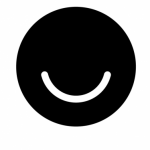A Tale Of Two (Or Three) Facebook Challengers
![]() For a website that hosts so many cute pet videos, Facebook is not a place that reeks of happiness and sincerity. It’s populated by a good chunk of the world, and it’s filled with a lot of meaningful moments captured in text, camera and video by people who know that, more and more every day, this is where you can share these moments with a broad segment of your friends and family. And that’s the entire hook of Facebook — it’s where everyb
For a website that hosts so many cute pet videos, Facebook is not a place that reeks of happiness and sincerity. It’s populated by a good chunk of the world, and it’s filled with a lot of meaningful moments captured in text, camera and video by people who know that, more and more every day, this is where you can share these moments with a broad segment of your friends and family. And that’s the entire hook of Facebook — it’s where everyb ody is. The feature set is not the hook, because Google Plus and a variety of other platforms offer similar feature sets. And many of those competitors, including Google’s offering, are more sensitive to the privacy concerns of their users and less invasive about how they share your data with advertisers.
ody is. The feature set is not the hook, because Google Plus and a variety of other platforms offer similar feature sets. And many of those competitors, including Google’s offering, are more sensitive to the privacy concerns of their users and less invasive about how they share your data with advertisers.
Many of my professional acquaintances are on both Facebook and Google Plus. But they comprise only about a third of my Facebook friends. So I check Facebook most every day. I go to Google Plus on rare occasion.
Facebook has a well-known history of overstepping. From the numerous poorly thought out schemes to court advertisers by letting them tell the world what lingerie we’re buying to use our photos in sidebar advertising, to the constant updating of security settings that seems to always result in less security, it’s clear to most of us that Facebook is trying to please it’s advertisers primarily, and we are more the commodity that they broker than the clientele that they serve.
A few years ago, some people who valued Facebook but were fed up with these concerns developed Diaspora, the anti-Facebook — a network that is built on open source software; distributed, and highly respectful of our right to own and control our content. Diaspora does this by storing the data in “pod s“, which are individual data stores hosted by users. You can join a friend or neighbor’s pod, or start your own. The pods, which work a lot like peer-to-peer apps like BitTorrent, communicate with each other, but the people who run Diaspora do not control that data. You can blow away your Pod from your file manager or command line if you care to, and nobody is going to stop you. If these networks were fictional, Facebook would have been created by Andy Warhol and Diaspora by Ursula LeGuin.
s“, which are individual data stores hosted by users. You can join a friend or neighbor’s pod, or start your own. The pods, which work a lot like peer-to-peer apps like BitTorrent, communicate with each other, but the people who run Diaspora do not control that data. You can blow away your Pod from your file manager or command line if you care to, and nobody is going to stop you. If these networks were fictional, Facebook would have been created by Andy Warhol and Diaspora by Ursula LeGuin.
And this week’s big news is Ello, which, like Diaspora, has defined itself in relationship to Facebook as the user-focused alternative. Ello is, at present, a rough beta network that shows glimmers of elegance. Their manifesto is poetry to BoingBoing readers like me:
“Your social network is owned by advertisers.
Every post you share, every friend you make, and every link you follow is tracked, recorded, and converted into data. Advertisers buy your data so they can show you more ads. You are the product that’s bought and sold.
We believe there is a better way. We believe in audacity. We believe in beauty, simplicity, and transparency. We believe that the people who make things and the people who use them should be in partnership.
We believe a social network can be a tool for empowerment. Not a tool to deceive, coerce, and manipulate — but a place to connect, create, and celebrate life.
You are not a product.”
But let’s be clear about Ello. It’s centralized, like Facebook; not distributed, like Diaspora. It was built with about half a mil of venture capital funding. It will need to make money at some point in order to return on that investment. As we watch Twitter get more and more commercialized, we know that this is a story just waiting to happen.
So, what am I saying? That we should skip Ello and proceed to Diaspora? Sadly, no. While Diaspora has the model that I believe is viable to sustain a non-commercial, user-focused network, Grandma isn’t going to host her own server pod. Peer-to-peer technology is not ready for prime time yet. So I don’t see a Facebook killer here, or there, or anywhere in sight. I see people who understand that the crass pimping of our personal lives that Mark Zuckerberg calls a business model is problematic and worthy of replacing. We can’t replace it with something too geeky for the masses, nor can we replace it with a clone that kinda hopes that it will have a better business model (but likely will only have a less abrasive version, much like Google Plus).
I have a lot of high hopes lately.
I hope that we can curtail this trend of training our local police to be paramilitary units and champion nationwide community policing, as a community controls and reduces crime, while a military goes to war.
I hope that we can reverse the damage that was done when TV News programs became subject to Neilsen ratings. I consider that to have been a dark day for our society. It was the hard turn that steered us to a place where news is available for whatever biased lens that you want to view it through.
And I hope that somebody will develop a Facebook competitor with a viable business model and a compelling feature set that will yank all of my friends and family out of their complacent acceptance of Facebook’s trade-offs. In this digital era, this is insanely important. We commune online; we share our most treasured moments. We sway each other’s attitudes on important matters. The platform has to be agnostic, and it has to be devoted to our goals, not those of a third party, such as advertisers. We have enough problems with societal institutions that have a stated purpose, but answer to people with different aims.
These are all realistic dreams. But they seem pretty far away.


Facebook was eager to prove my point, as they announced their new Atlas product this morning, which will track our behavior both online and offline and offer marketers a comprehensive profile of absolutely everything we do.
Thanks, Facebook, I really want those marketers to know every facet of my personal life and behavior. Thanks for opting me in with no opt-out in site…
http://mashable.com/2014/09/29/facebook-ads-atlas/
I’ve not been impressed with Ello’s code of conduct/privacy policy. I won’t be hopping over anytime soon.